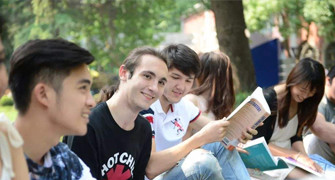Speaker:Dr Yifeng HUANG
Site:A321
Time:9:00-11:30 Monday Dec.4 2017
Abstract:This paper studies the incentives for stores to invest costly effort in serving customers. We conduct the analysis by developing a sequential search model. Each store must hire a sales agent, who is compensated by a fixed wage scheme or a commission based scheme. The commissions motivate sales agents to provide more advice, which could be indeed useful to increase clients' willingness to pay, or merely persuasive without affecting it. Consumers are sophisticated that understand the dual roles of effort before visiting a firm, but they could be impressionable and therefore could not stay away from the effect of persuasion once they are inside the firm. When consumers are heterogeneous in terms of their impressionability level, they are sorted into stores with different salesagent compensation scheme in the equilibrium. The composition of stores varies with the search cost as well as the ability of the sales agents to increase consumers' willingness to pay (effectiveness of advice). When the advice is relatively ineffective, there will be an increase in mass of fixed wage stores in response to a reduction in search cost. Additionally, the mass of fixed wage stores always increases as the advice becomes less effective. These are consistent with the observation that the using of fixed wage scheme becomes more popular during information age. The competitive equilibrium outcome might imply that there are too few or too many commission-based stores, so the welfare effect by encouraging more consumers to visit the fixed wage stores is ambiguous.
 Faculty and Staff
Faculty and Staff Academics
Academics International Exchange
International Exchange







